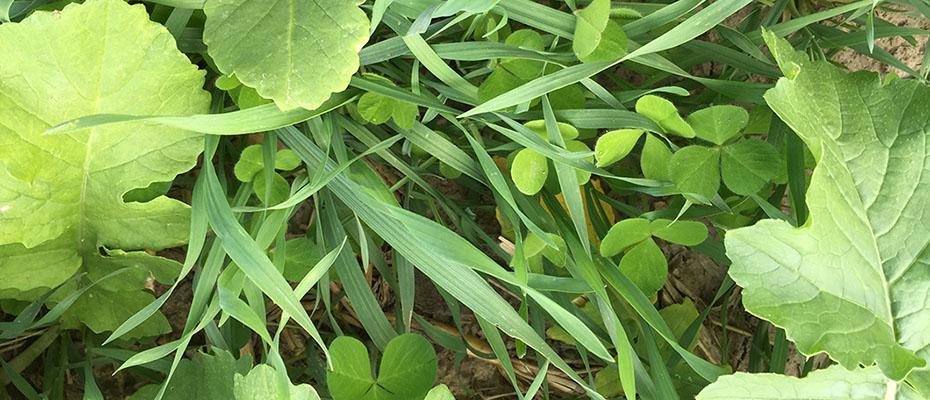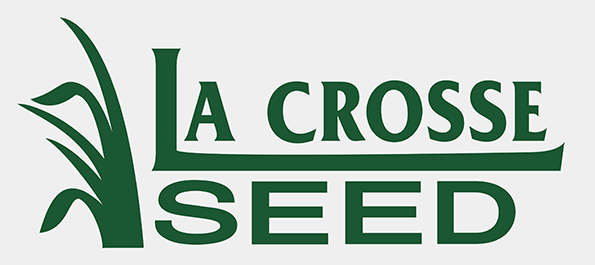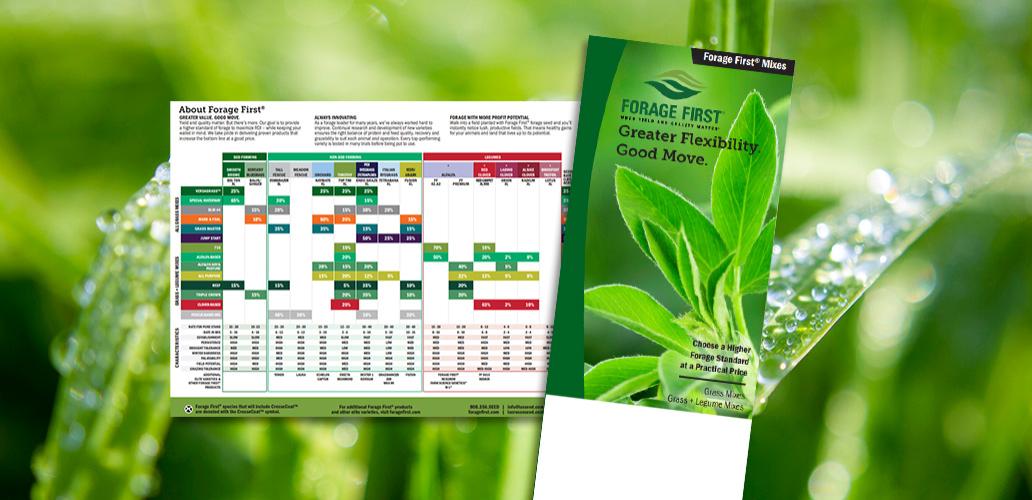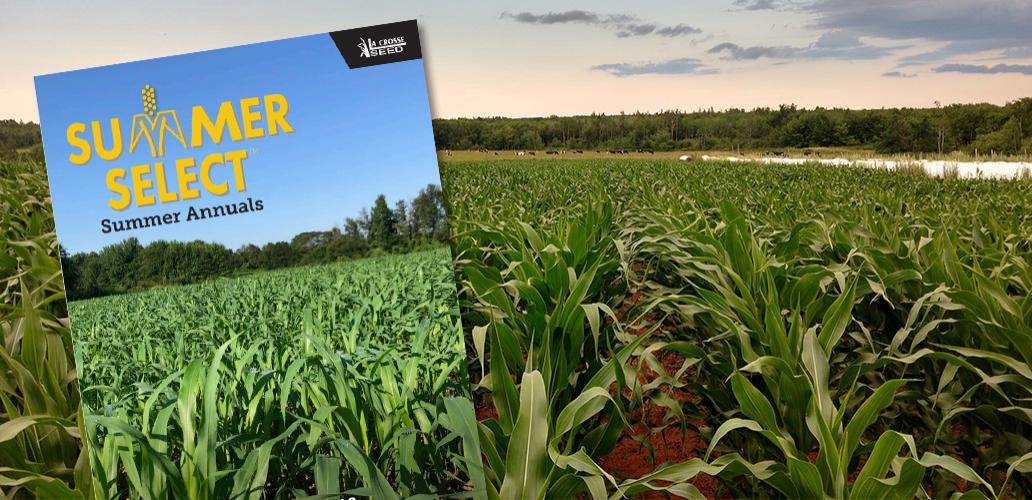Forage First Guide I Summer Select Guide
Greater Value. Good Move. Yield and quality matter. But there’s more. Our goal is to provide a higher standard for forage to maximize ROI– while keeping your wallet in mind. We take pride in delivering proven products that increase the bottom line at a good price.

72% Guardian Winter Rye
20% Crimson Clover
8% Tillage Radish
Soil First® 102 Cover Starter+ cover crop mix builds Nitrogen and root mass while improving soil tilth and biomass potential.
CHARACTERISTICS:
Non-Forage Benefits:
1 = Poor; 5 = Excellent
Compaction Alleviation: 5
Weed Suppression: 5
Biomass Production: 4
Erosion Control: 5
Disease/Pest Control: 3
Pollinator/Beneficials: 2
P & K Cycling: 4
Ease of Establishment: 4
Nitrogen Fixer/Scavenger: Both
Nutritional Value:
Values Vary Greatly Depending on Maturity
Crude Protein: 12-15
DM Tons/Acre: 2-5
Days to First Harvest: 45-50
Days to Next Harvest: Spring
Ranking (Good, Better, Best):
Graze: Best
Baleage: Good
Chop: Better
SEEDING:
Planting Time:
Aug.-Sept.
Seeding Rate:
Mono (lbs./acre): 30-35
Forage (lbs./acre): 40-50
Seeding Info:
Seeding Depth (in./with drill): 1/4-1
Germination Soil Temp.: 45 F
Bulk Density (lbs./ft.³): 54
Aerial Application Rate: 30-40
MANAGEMENT:
Considerations:
When seeded in early summer, additional grains or grass will need to be added to compete against radish growth. Rye can tie up nitrogen and other nutrients. Controlling rye early results in less nutrient tie-up and conserves more water. Crimson clover may attract voles and may need terminating even earlier to decrease the residue.
Termination:
Rye can be controlled with traditional glyphosate rates prior to 12-18 in. growth. 2 ft. tall rye should be controlled with roller or crimper. If mowing, wait until rye begins to flower. Radish will terminate with multiple nights in the teens. If radish survive, glyphosate and 2,4-D offer an effective control method. If crimson clover overwinters, control with glyphosate and 2,4D.
.

- Crimson clover allows entire seed mix to decompose quicker, conserve water and decrease nitrogen immobilization
- SF 102 Cover Starter+ cover crop mix is SF 101 with the addition of crimson clover, fixing nitrogen for grass cash crops
- Crimson clover is fairly quick to establish, adding biomass and additional root structure
- Nitrogen is maximized at clover flowering, however spring management will need to be considered

.png)
.png)


.png)











